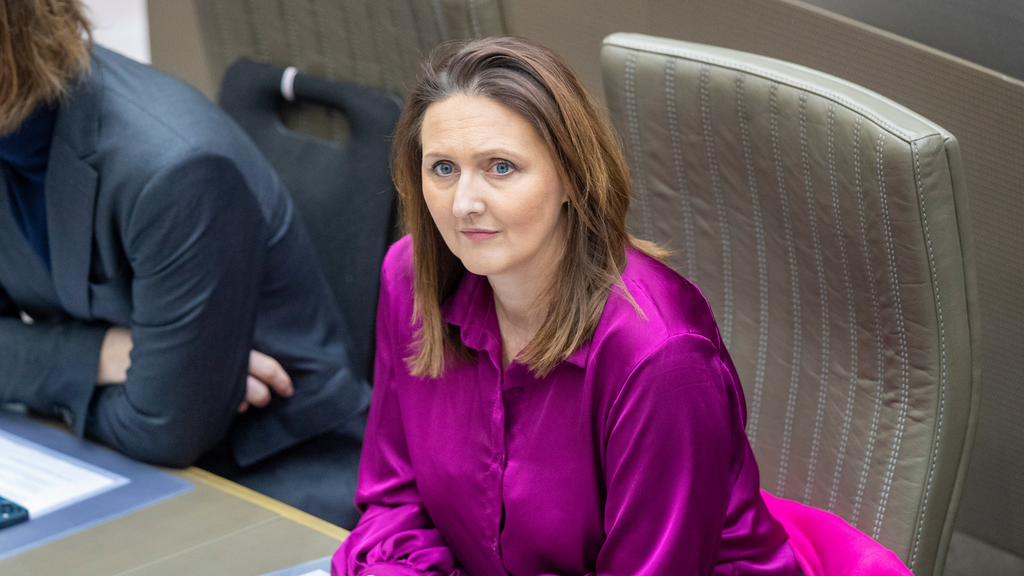Flemish MP Gwendolyn Rutten (Open VLD) on Monday published an opinion piece in De Standaard in which she talked about her experience with hormone treatment for menopause and advocated for breaking taboos around this critical time in women's health.
However, on Monday night De Standaard published a piece that called into question the efficacy and safety of hormone treatments for menopausal symptoms.
'I am myself again'
Rutten lamented the standard treatment women receive after describing their menopausal symptoms: "Very often complaints are not treated or treated incorrectly. Anyone who has sleeping problems will be prescribed a sleeping pill. Anyone who has muscle complaints must be patient. Gaining weight is said to be a matter of laziness, old age or a lack of discipline. Anyone who is down has a burnout or is prescribed antidepressants. We rarely look at the full picture."
The MP described her ailments as making her feel like she had to "live in a strange body". She was relieved when at last she was diagnosed with perimenopause (the time leading up to menopause, which often has many of the same symptoms) and said that natural hormone treatments made "a world of difference."
"I am myself again. My physical complaints have improved and this also has a positive influence on how I function, at home and at work. Women do not have to suffer, tolerate or hide these complaints." Rutten cited Herman Depypere, Ghent University professor and author of the book Menopauze, saying that his research shows that many menopausal symptoms can be "tackled with natural hormones."
On the question of a social taboo that exists around menopause and the possibility of hormone treatment, gynaecologist Tinne Mesens echoed Rutten's arguments, saying women often mistake ageing with ailments related to hormonal imbalance. "In our society, you are quickly labelled burnout or depression if you are struggling to keep up, but that can also be a misdiagnosis," she told Het Belang van Limburg.
"If the patient is actually in perimenopause or menopause, she will benefit more from a hormonal preparation than an antidepressant or sleeping pill."
An 'unsubtle' piece
Yet the same day to Rutten's publication, Kubra Mayda and Amber Janssens responded with an article that questioned the claims about hormone treatment. They leaned on experts Birgitte Schoenmakers, Professor of Family Medicine at KU Leuven, and Marleen Finoulst, a physician and founder of the Health and Science (Gezondheid en wetenschap) website which reviews health claims.
Finoulst found Rutten's piece "unsubtle" and emphasised that not everyone responds to hormone therapy the same way. She argued that "hormone treatment only has a positive effect for hot flashes. For other complaints, such as mood swings, there is no evidence that hormones help."
"There are indications that hormone treatment also helps with vaginal dryness. But for all other complaints, hormone therapy doesn't help as much as women think or advertising leads them to believe," Schoenmakers added. She argued that when women over 45 show symptoms of menopause, doctors are usually quick to make the link.
Both Finoulst and Schoenmakers raised concerns about the risks that come with hormonal treatments, including elevated incidence of breast cancer and uterine tumours, especially in women who have previously had gynaecological cancers. The risk of thrombosis and fibroids, which can cause heavy bleeding and pelvic pain, also grows.
Related News
- Better understanding of the female body in medical world urgently needed, say CD&V
- Over half of menopausal women suffer at work, study shows
- Free menstrual products offered in six Brussels schools from this week
"As long as the woman is menstruating, we are cautious about hormonal substitution," Schoenmakers explains. She outlined the questions that can direct treatment: "If a woman's quality of life deteriorates significantly, for instance due to hot flashes, we have to ask whether the diminished quality of life is outweighed by the possible risks."
In an interview with Het Belang van Limburg, gynaecologist Marc Muyldermans concurred: "If quality of life is compromised by discomfort, it would be wrong not to treat women, provided the safety conditions are met."
Rutten stressed that she was not advocating a one-size-fits-all solution: "I am not a doctor and will not tell anyone what to do... As a politician, I want the taboos to be broken, to be discussed and considered so that sufficient resources are deployed for scientific research."
She called for a broader, political initiative to break taboos around the topic of menopause: "Urgent action is needed at all policy levels, from training to practice, from prevention to healthcare, from the workplace to the living room."

